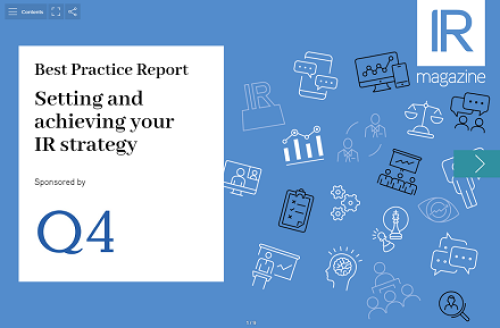The rise of shareholder activism is pushing companies to seek out more information on their shareholder base, according to proxy solicitor Okapi Partners. This comes as figures for January show what Activist Insight says is thought to ‘represent a new record for activism.’
Activists publicly targeted 81 companies last month, representing a 13 percent year-on-year increase for the month.
Although levels of activism and public proxy fights come in waves, the general trend has been one of growth in the number of campaigns, and this is causing companies to take a deeper look at their share register, Bruce Goldfarb, president and CEO of Okapi Partners, tells IR Magazine.
‘Our clients (and their other advisers) have been asking us to provide assistance with their understanding of who owns their stock and who is trading in their stock,’ says Goldfarb, whose New York-headquartered firm was named by Activist Insight as the proxy solicitation firm that worked on the most activist campaigns in both 2016 and 2017. Many of the companies looking for this information are looking to monitor their share register on a continuing basis and ‘want more than a snapshot of holders every quarter,’ he adds.
It is ‘the rise in activist investing [that has] prompted this increased scrutiny,’ Goldfarb says. In response, Okapi Partners announced on February 1 that it had acquired Market Intelligence Group. In a statement announcing the deal, Patrick McHugh, co-founder and senior managing director at Okapi Partners, discusses the importance of having an accurate picture of the shareholder base across a number of scenarios.
‘Whether we are working for a public company on its annual meeting, an M&A campaign or engagement outreach, or advising an activist investor, understanding a company’s constantly changing shareholder composition is integral to the success of any voting campaign,’ he says.
As reported in IR Magazine last year, however, there are obstacles to having a truly up-to-date picture of the share register, and transparency is ‘even less of a given’ in the US – which has a 45-day deadline for Form 13F filings – than in other countries, such as the UK.
Goldfarb concedes that ‘real-time data is difficult to discern and that investors don’t want to have trading strategies front run before the required public reporting.’ Experience and judgment are necessary, he says. For Goldfarb, part of that comes from the acquisition of Market Intelligence Group and the continued running of Okapi’s new subsidiary by Walt Schuplak, founder and managing partner of the original firm, which has been operating out of New York since 1998.
Okapi has its own experience. ‘Okapi Market Intelligence Group provides much more than simple data from public filings,’ Goldfarb says. ‘We make use of our market relationships and collective wisdom to analyze what types of shareholder are buying or selling a company’s stock. That sort of analysis can help companies make better decisions about ongoing voting campaigns, investor relations tactics and overall business strategy.’
He says the firm is ‘able to identify – with some certainty – what types of institutional clients might be transacting in the stock: hedge fund, exchange-traded fund, pension fund, mutual fund, and so on. Our analysis also uncovers patterns that can tell a company many things about how investors are viewing their announcements and overall strategy.’
Goldfarb notes that this data is often used by IR teams to validate their program or in updates to management and the board, but he argues there is more value to be gained. ‘To us, this information should become a starting point to appreciate a better understanding of the company’s investors, which will then frame discussions regarding year-round engagement outreach and other strategic initiatives for the company that require stockholder approval,’ he says.
Although the number of proxy battles hit a five-year low of 79 last year, according to data from FactSet, the fact that companies seem to be settling with investors before disagreements escalate into a proxy fight is unlikely to stem demand among companies looking to know who is buying up their stock.










